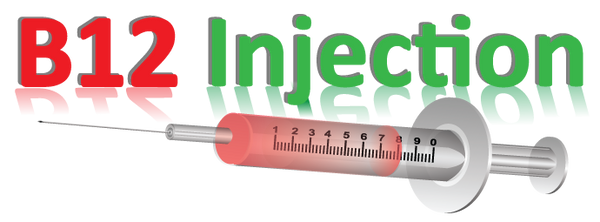B12 injection: Why do it?

Vitamin B12 is a water-soluble vitamin essential for various vital functions in our body. It plays a crucial role in maintaining the health of our nerve and blood cells, aiding in DNA synthesis, and preventing megaloblastic anemia—a condition characterized by the production of abnormally large and dysfunctional red blood cells. Although B12 is naturally present in a wide variety of animal-based foods and some fortified products, certain diets and health conditions can lead to insufficient intake or absorption of this vital nutrient.
Importance of Vitamin B12:
- Nervous System Health: B12 is critical for the proper functioning of the nervous system. It helps in the formation of the myelin sheath, which protects nerve fibers and ensures effective transmission of nerve impulses.
- Red Blood Cell Formation: B12 assists in the production of red blood cells, preventing anemia and ensuring that oxygen is efficiently transported throughout the body.
- DNA Synthesis: B12 is necessary for DNA synthesis and repair, playing a key role in cell division and overall cellular health.
Challenges in B12 Intake:
- Dietary Restrictions: Vegetarian and vegan diets often lack sufficient B12, as the vitamin is primarily found in animal products.
- Absorption Issues: Some individuals have medical conditions that affect B12 absorption, such as pernicious anemia, Crohn's disease, celiac disease, or those who have undergone gastrointestinal surgeries.
- Age and Lifestyle Factors: Older adults and individuals with certain lifestyle factors, such as chronic alcohol use, may have a reduced ability to absorb B12 from food.
Why B12 Injections? While oral B12 supplements are available, B12 injections offer a highly effective and safe alternative for those who:
- Lack Intrinsic Factor: Individuals who lack intrinsic factor, a protein necessary for B12 absorption in the stomach, benefit significantly from injections.
- Post-Surgery Patients: Those who have had weight loss surgery or other gastrointestinal surgeries that affect nutrient absorption can ensure adequate B12 levels through injections.
- Malabsorption Issues: People with conditions that impede the breakdown and absorption of B12 in its oral form find injections to be a reliable source of the nutrient.
Determining B12 Deficiency: Identifying B12 deficiency isn't always straightforward. Blood tests measuring B12 levels can help, but they may not provide a complete picture. Symptoms of deficiency can include fatigue, weakness, memory loss, and neurological changes. Each case should be evaluated individually, considering dietary habits, medical history, and overall health.
Ensuring adequate B12 levels is crucial for maintaining energy, cognitive function, and overall well-being. If you're experiencing symptoms of B12 deficiency or are at risk due to dietary or medical reasons, B12 injections could be a beneficial option. Consult with a healthcare provider to determine the best course of action and start feeling more energetic and healthier today!
